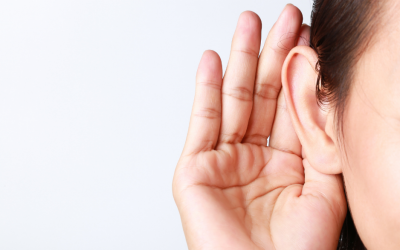Gratitude is one of the most influential factors in living a joyful, fulfilling life. Many benefits accompany a regular gratitude practice, from improving your mental health to strengthening your relationships and more.
In the beginning, practicing gratitude can seem overwhelming, so it is essential to break it down into small steps. Before you try to grasp the bigger picture, focusing on the mundane, bite-sized moments and feelings can help you begin. Over time, increase your tiny steps into a wider, habitual routine. Not to mention, it is called a “practice” for a reason—a daily dedication to consciously being grateful makes all the difference.
Psychologist and researcher Robert Emmons, considered to be the world’s leading expert on gratitude, has described two key components to building a gratitude practice: affirming the good in our lives and acknowledging the role others play in our lives to provide goodness.
A series of studies conducted by Emmons and his team found that gratitude has a profoundly positive effect on people’s lives. Some of the benefits they discovered were:
- Stronger immune system
- Lower blood pressure
- More restful and refreshing sleep
- Enhanced alertness
- Feeling more joy, pleasure, and optimism
- Becoming more helpful and compassionate towards others
- Feeling less lonely
- Lower stress levels
The ways in which you can choose to practice gratitude are vast. Here are some ideas to help increase your gratitude practice.
- Be extra observant.
When you practice gratitude, your ability to observe closely is perhaps the most important step. Observe first how much you already give thanks. Strive to make it a habit. Next, observe everything around you—your environment, the people in your life, your current situation or circumstances, and anything that happens throughout your day. As you intentionally begin finding more to be grateful for, observe how it makes you feel. Observance should always be at the forefront of your gratitude ritual.
- Notice your senses.
Taste, touch, smell, eyesight, and hearing make up your five main bodily senses. Consciously tap into each of your senses when you want to think of something to be grateful for. This could be anything from feeling a fresh breeze on your face when you step outside, to smelling a bouquet of flowers, to enjoying a beautifully colored sunset, to hearing your favorite song, or tasting a delicious dessert. Your senses are how you experience the world firsthand, so it is great to use them to facilitate your gratitude practice.
- Be specific.
Instead of saying, “I am grateful for my meal,” say instead “I am grateful for my access to healthful foods to cook and eat a nourishing meal.” The more you niche down on the things you are grateful for, the more your brain recognizes these little things as substantial reasons to express thanks. Perhaps you never thought to give thanks for small, specific times in your life—starting a gratitude practice can be a good way to increase your mindful recognition of gratitude both great and small. Get creative and think outside of the box when contemplating why you are grateful.
- Remember the bad, too.
Cultivating gratitude is not all about the good in life. Acknowledging the full spectrum of emotions and circumstances is essential to bringing yourself into the present and strengthening your feelings of gratitude for the good things. For instance, if you are struggling with feelings of rejection in your career, you can be both disheartened by your setback while also giving thanks for the lessons you have learned along the way.
- Make a promise to yourself.
By holding yourself accountable and exerting self-discipline, you are more likely to build a successful gratitude practice that will benefit you for the long term. Practicing gratitude is best as part of a regular routine, not just something you do when you may feel especially thankful. Make a vow to yourself to keep up your gratitude practice regularly, even when you feel low or uninspired.
- Share with others.
Sometimes your perspective shifts when you communicate with others about the things you are grateful for. You may feel encouraged by the words of others. Likewise, you may also feel a healing release when you share your gratitude with someone you care about. Telling someone else you are grateful for their presence in your life is also a wonderful way to boost their spirits.
- Reflect during meditation.
Meditation is a practice that can be done whenever and however you wish, which includes incorporating your gratitude routine. A meditation technique known as “Naikan” can help. This method involves reflecting on three questions: “What have I received from __?”, “What have I given to __?”, and “What troubles and difficulties have I caused?” Try asking yourself these questions as a way to help you meditate on your gratitude.
- Keep a gratitude journal.
Perhaps the most well-known and popular way to practice gratitude is to do so through keeping a dedicated journal. Taking time to write down the things you are grateful for each day can give you visual reassurance which can help to motivate you in keeping a consistent ritual. As time passes, you can feel rewarded by looking back on your progress and reminiscing about past gratitudes.
Which method of practicing gratitude speaks to you the most? Cultivating gratitude can be deeply gratifying, and one of the best parts of developing your practice is that you can make it your own, following whichever path feels right to you.



0 Comments
Trackbacks/Pingbacks